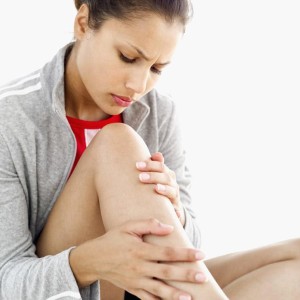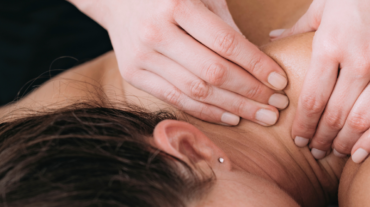
Acupuncture and Traditional Chinese Medicine (TCM) has a slightly different approach to diagnosing and (of course) treating your knee pain. Obviously something that is structurally damaged, such as a severely damaged and degenerated knee, requires surgery and cannot yet be treated with acupuncture. However, even in this case acupuncture can help the healing process after surgery, and help to ensure that your knee heals properly.
In TCM, pain in your knee is classified as one of the different types of Painful Obstruction Syndromes possible in your body. Furthermore, pain in your knee will be indicative of one of three different TCM patterns: Kidney deficiency, Qi and Blood stagnation, or invasion of an external pathogen.
Deficiency in your Kidney organ system ('Kidney' is capitalized to differentiate from the scientific definition of 'kidney') in relation to knee pain is quite common in older age, and is usually felt on both sides of your knee. This pattern also takes a long time to develop, and often accompanies weakness of your knee, which will not likely be swollen or affected by the weather.
Qi (aka 'energy') and Blood (very much the same as we know 'blood', but still capitalized here for our purposes) stagnation is usually caused by overwork. Thus a job or lifestyle that involves a lot of kneeling or intense physical activity (e.g. construction workers, athletes) may develop knee pain.
Since The Theory of Five Elements (one of the main theories that makes up TCM) states that everything which exists in the universe also exists within us, it should not be surprising that external pathogenic factors that can invade your body might be natural in description. Thus, your knees can be affected by exterior Cold, Heat, Wind or Dampness, and in such cases are then affected by said weather (e.g. your knee pain will be worse when it's cold out if Cold has invaded your body). Swelling of your knee is usually indicative of Dampness.
Selection of which acupuncture points to use will depend on your TCM diagnosis, so be sure that whoever is treating you is properly trained in Chinese Medical diagnosis. In terms of preventing knee pain, proper exercise (such as yoga) as well as a healthy diet will help. Regular exercise helps to prevent Qi and Blood stagnation, and it will also help to build your immunity and prevent the invasion of external pathogens. Knowing when to cease excessive activity will help to prevent Kidney deficiency as you age. In terms of diet, various suggestions can be made, usually based on the pattern you most closely resemble. Cold patterns necessitate avoidance of raw foods, whereas a small amount of alcohol can be beneficial. However, alcohol is contraindicated if your knee is blocked by Dampness, which is also exacerbated by such foods as dairy and fried-foods.
Ultimately, acupuncture is very effective in treating all types of knee pain, and can help the recurrence of this sometimes debilitating condition. If you suffer from knee pain, know that you can find help with this ancient medicine.
For more information, and to obtain your own free TCM diagnosis, contact us.
By Richard Lobbenberg, Acupuncturist and TCM Practitioner
These links may also be helpful:







